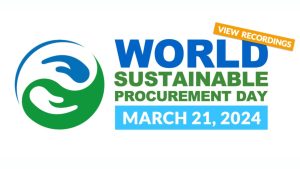 A commodity is “equivalent no matter who produces it”.
A commodity is “equivalent no matter who produces it”.
The challenge though is that travel exhibits non-commodity behavior that makes it trickier to deal with than conventional procurement commodities, Dr. Roderick Ross, CEO of online travel management platform TravelLinck tells SmartProcurement.
Market research by an international publication, Business Travel Online, revealed that as early as 2008, approximately 40% of correspondents viewed domestic airline seats, hotel rooms and rental cars as commodities.
With industry-wide quality requirements, such as SIPP codes for vehicles, star ratings for hotels, and safety standards for airlines, it is possible to see why in some cases one can provide constraints in a travel policy that effectively commoditise the travel services.
As the one year anniversary of the FIFA World Cup approaches, Ross uses the legend of PELE to address the quirky nature of travel: it is (1) Perishable, (2) challenging to Estimate upfront (3) influenced by Loyalty and (4) Emotive.
 First, travel is modeled as a perishable commodity by travel suppliers, with revenue management systems that maximise yield and account for the fact that once the flight has departed it is impossible to sell that empty seat. This means that prices fluctuate. Broadly speaking the price of certain services increases closer to the travel date, but the advent of distress stock auction systems, has meant that even that trend is impossible to predict with certainty. One needs technology that taps into real-time availability to determine accurate pricings as and when they are required.
First, travel is modeled as a perishable commodity by travel suppliers, with revenue management systems that maximise yield and account for the fact that once the flight has departed it is impossible to sell that empty seat. This means that prices fluctuate. Broadly speaking the price of certain services increases closer to the travel date, but the advent of distress stock auction systems, has meant that even that trend is impossible to predict with certainty. One needs technology that taps into real-time availability to determine accurate pricings as and when they are required.
The second challenge is that travel costs are sometimes harder to estimate than is the case for other commodities. When one confirms a reservation with a supplier, the invoiced amount is sometimes unknown at the time. For example, travel has complex cost components, owed to nested services (e.g. meals at a hotel, additional GPS devices on a car), and the unknown information at the time of booking (e.g. exactly how far will I drive and what will my fuel consumption be?).
The third challenge is that travel is a commodity that can be influenced by a traveller’s personal loyalty programme with a supplier, much more so than the likes of stationary, for example.
Finally, given that travel is triggered by a business event that in itself may be stressful (e.g. an important sales meeting, a Board presentation), and physically displaces the traveller out of their comfort zone, with time pressures, travel is often a very emotive experience.
Given that travel is often the second largest controllable spend in an organisation it must be placed in the hands of Procurement professionals, rather than Human Resources, says Ross. Travel service providers, therefore, need to understand the importance of providing information in a manner that Procurement professionals expect.
Business intelligence and data mining are key tools to unlock the nature of the “commodity spend” and the more easily they can be accessed (e.g. online BI) the better.
In closing, is worth noting that 50% of the Business Travel Online correspondents viewed price and service as being equally important.
Personnel who approve travel are therefore faced with decisions to approve something that displays a dual nature. While we may never travel at the speed of light, we may take comfort from the fact that light displays duality, existing as both a wave and a particle.
Service quality and price commoditisation are likely to be the duality that prevails in the travel industry, and a wise travel approver will understand the value of both in his or her decision making process.
Next month Ross will analyse the actual approval process in more detail. For more information contact Roderick Ross of TravelLinck on rod@travellinck.com

























